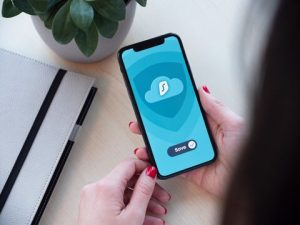 In today’s business environment, the line between mobile and non-mobile devices is becoming ever more blurred. It’s essential that business users have smart phones, tablets, and other mobile devices that help them with their day-to-day tasks. According to a Pew research study, 81% of Americans have a smartphone, and the average user checks it over 50 times per day.
In today’s business environment, the line between mobile and non-mobile devices is becoming ever more blurred. It’s essential that business users have smart phones, tablets, and other mobile devices that help them with their day-to-day tasks. According to a Pew research study, 81% of Americans have a smartphone, and the average user checks it over 50 times per day.
As our mobile devices become more integrated with our business lives, vital to make sure they are secure. Mobile devices are becoming more of a target for cyber criminals and hackers each year. Implementing even the most basic security measures on your mobile device can go a long way in preventing compromise and unauthorized access to your device. Follow the security tips below, and you’ll be on your way to maintaining better security on your devices.
Implementing Security Measures
The most basic security measure you can implement on your device is ensuring that it is locked with some sort of security method, such as a password, fingerprint, or other biometric features. Failing to implement this simple security measure leaves your device open to cyber breaches, both in person and remotely.
Using a simple PIN may make unlocking your phone quick and easy, but it also makes a hacker’s job easy. Consider increasing the password length set on your phone to include at least 8 characters and even better – implement a biometric based password like Face ID or a fingerprint. When using biometrics, it makes it even more difficult for cyber intruders to gain access to your device and nearly impossible for others to access your device in-person.
Consider implementing caller protection apps on your phone, such as Burner or Firewall. These applications help protect against hackers, salespeople, and unwanted callers from getting access to your phone. Burner prevents people from seeing your private number by generating new numbers that can be used as long as you like before burning them when they are no longer needed. Firewall allows iOS users to send unwanted calls straight to voicemail without ever ringing your phone.
Another security practice you should always keep in mind is to never charge your phone at a public charging station; public ports, cannot be trusted. Hackers have been known to compromise these ports and use them to prey on unsuspecting victims simply trying to charge their phone. This is known as “juice jacking,” and can give hackers access to information on your phone just by plugging it into a compromised power strip or charger.
Implementing these basic security practices can help prevent your phone from being the next gateway into your data for hackers. For more useful tips to keep your business devices secure, check out more related topics at the Natural Networks site today!



